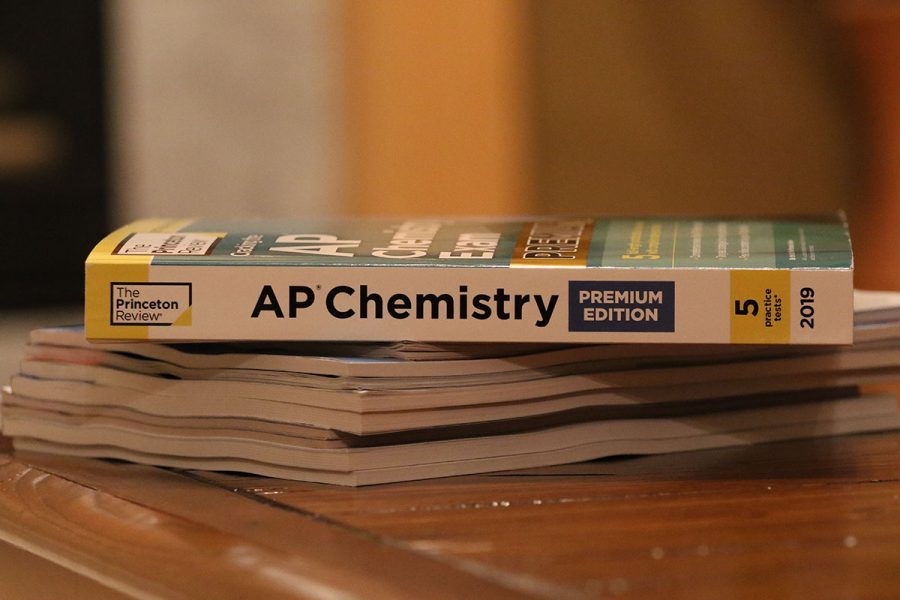Testing new tech
The state of Iowa will ditch the Iowa Assessments and opt for a new, more technologically-enhanced test for the spring of 2019.
The ISASP tests will begin on Tuesday, April 16 and last through Thursday, April 18.
It’s that time again. A time for students to be surrounded by unfamiliar faces and wander to unknown places. A time of walking aimlessly among rows of desks searching for your name card. However, this year, the faint scent of pencil shavings will be absent. And even more noticeable, the silence will no longer be filled with the scritch-scratching of lead against paper. That sound will be replaced with the click-clacking of keyboards.
Last spring, the Iowa legislature passed a law called House File 2235, which called for the replacement of the Iowa Assessments with a new statewide exam that better aligns with educational standards set by Iowa Core. According to the Iowa Department of Education and school educators, among others, the traditional Iowa Assessments didn’t demonstrate core standards. This was especially true for technological literacy, leading to the development of the Iowa Statewide Assessment of Student Progress (ISASP) by the University of Iowa and Pearson, along with input from district staff.
“One of the most important things for us test developers is to make sure that the questions we’re asking align to what students are learning in school,” said Tim Hazen, a Director of Test Development at Iowa Testing Programs at the University of Iowa. “When we write the questions [and] develop the materials, we use a lot of Iowa teachers to help us with that … since they’re the ones in the classroom, and they’re the experts. We rely a lot on them.”
According to Principal Gregg Shoultz, testing days will be April 16-18 rather than in the fall as in years past. Each day will be split in half, one for testing and the other for regularly scheduled classes. Students will also take a practice test during AFT on April 15 to ensure that the program can run 1200 users simultaneously. However, similar to the Iowa Assessments, seniors will be excused from classes during testing since the statewide exam is mainly focused on monitoring the development of younger grades.
“Monday [before test day] during AFT time we’ll send everybody to their testing room, … [and] we’ll test it out,” Shoultz said. “If it looks like we may need more than one practice round, then we’ll do it a week before and try it again [to] make sure everybody can get on.”
Besides the testing dates, a major difference between Iowa Assessments and ISASP is the use of online testing. Individual school districts may choose which subjects are tested online, and the ICCSD has chosen to have an entirely online-based test.
“What makes the online test different is it can be read to you. You can put headphones on if you have that accommodation,” Shoultz said. “Anybody can change the settings to be a more comfortable experience. We can [also] get the scores back faster, and we can provide an adaptable testing environment that you can’t do with paper.”
Another variation is the addition of an essay and open-ended questions on the math, language arts, reading and science sections. Only fifth, eighth and tenth graders will be tested in science, and social studies will not be administered, as that subject is not required by House File 2235.
“On tests such as the ISASP, students’ mastery of the writing standards would be best measured on how well a particular student writes by seeing a direct sample of students’ writing,” Hazen said. “One of the nice things too about the online testing is that we can take advantage of technology for scoring student essays, so that makes them not as expensive to score.”
While there are advantages to a technologically-enhanced test, there are drawbacks as well. In particular, an incentive to cheat, as students may look up content or communicate answers through social media.
However, administration holds no concerns regarding the potential increase in cheating. This is because the software supporting ISASP, TestNav, locks down each tester’s computer, making them unable to access the internet during testing. Students are also not permitted to access cell phones and take screenshots of the assessment.
“Once you’re in and start that test, that’s the only place you can go to until you’re done with the test,” Hazen said. “Once a student installs the testing app and accesses the test, it locks down everything that’s on that computer.”
Standardized tests such as ISASP provide valuable information to students, as it shows the development of individual test takers over their academic careers. Yet, Isabella Hoeger-Pinto ’20 believes this information isn’t always an accurate display of a student’s abilities.
“It’s supposed to be a benchmark of where you’re at. Unfortunately, sometimes standardized testing … ends up having a lot more weight than I really think they should,” Hoeger-Pinto said. “The point of [ISASP] is to measure where you’re at. But if someone feels like they’re under a lot of pressure, … you’re not really judging their knowledge, you’re judging their ability to perform under pressure.”
While Hoeger-Pinto believes standardized tests aren’t always the most reliable measure of success for students, she acknowledges that they carry a lot of weight for schools. At West High, results from the statewide test are factored into the school’s comprehensive improvement plan. This means that data from testing displays subgroups within the school that are not performing on par with other academic institutions.
Administration then analyzes that data and incorporates their findings into the upcoming year’s curriculum. This is one of the reasons Shoultz believes it’s imperative that students take statewide assessments seriously so the results are accurate, but he also acknowledges that tests don’t define a person’s ability to succeed.
“It’s very important for us to do this check, … [and] I would definitely let students know to do their best but not to worry about being judged for that,” Shoultz said. “This is like checking your engine. … If a student has a really bad day on this test, but has a desire to take a class, we think that they’re probably going to overcome. … We’re not going to use a test score to hold them back.”
For practice tests, click here.
Your donation will support the student journalists of West High School. Your contribution will allow us to purchase Scholarship Yearbooks, newsroom equipment and cover our annual website hosting costs.

Anna Brown is a senior at West High. This is her second year on staff and she is the Co-Copy Editor for print. When she isn't working on WSS, Anna enjoys...




g • Apr 14, 2019 at 8:41 pm
The photo illustration doesn’t match the title.